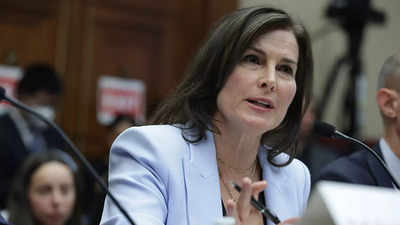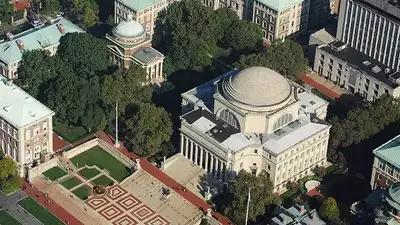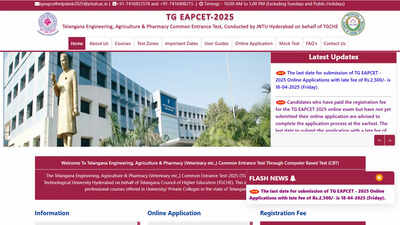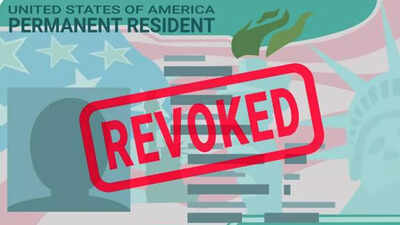Columbia University pushes back on Trump deal in dramatic shift, vows to protect independence

In a marked shift signaling rising tensions between academia and the federal government, Columbia University has taken a firm public stance against what it views as overreach from the Trump administration. In a strongly worded message late Monday, Acting President Claire Shipman pledged that the university would reject any agreement with federal authorities that compromises its independence or undermines academic freedom.
The declaration comes as negotiations continue between Columbia and the White House, which seeks to place the university under judicial oversight. As reported by The New York Times, the administration’s demands follow Columbia’s earlier reluctance to oppose federal interference — a position that had drawn sharp criticism from members of the academic community and beyond.
Columbia’s response evolves amid national pressure
Shipman’s latest statement, distributed to students, faculty, and staff, follows a major decision by Harvard University just hours earlier to reject federal conditions tied to ongoing investigations. That decision prompted the US government to freeze $2.2 billion in multiyear grants to Harvard. Columbia, which had already seen roughly $400 million in grants and contracts withdrawn, has now become the second major institution to publicly reject federal control of internal policies.
Shipman acknowledged the gravity of the moment, writing, “We face unprecedented pressures, with no easy answers and many uncertainties.” She noted that negotiations with the Federal Task Force to Combat Antisemitism were ongoing and had yet to produce any formal agreement.
As quoted by The New York Times, she emphasized, “We would reject heavy-handed orchestration from the government that could potentially damage our institution and undermine useful reforms.”
Lines drawn on institutional values and governance
While Shipman acknowledged that some federal recommendations align with Columbia’s goals — particularly those aimed at fostering a safe and inclusive campus — she was unequivocal in rejecting “overly prescriptive requests” involving governance, the presidential search process, and policies on viewpoint diversity.
“These are not subject to negotiation,” she stated plainly in her letter, published on Columbia’s official website. She further emphasized that Columbia “would reject any agreement in which the government dictates what we teach, research, or who we hire.”
Shipman said that the university may choose to make difficult decisions independently, when they serve Columbia’s best interests, but rejected any suggestion that those decisions should be directed by outside authorities, including the government.
A message of support to international students
In her letter, Shipman also addressed growing fears among Columbia’s international student population, many of whom have faced day-to-day disruptions stemming from federal actions. Recognizing the unique pressures on this group, she announced the launch of a new University fund designed to assist international students facing unexpected financial and logistical challenges.
The fund, supported by her office, Columbia’s Board of Trustees, and alumni donors, will provide direct aid. In addition, the university has significantly expanded resources within its International Students and Scholars Office (ISSO), including mental health support, extended staffing, and a dedicated website to support affected students.
“We have been following with great concern the various actions being taken by the federal government toward members of our community,” she wrote, noting that the impact has triggered “anxiety” and substantial disruption.
A call to reflect on the role of higher education
Shipman’s message also expressed concern about declining public trust in US higher education institutions, suggesting that this moment presents an opportunity for reflection and dialogue.
“I am especially concerned that many Americans have lost faith and trust in higher education,” she wrote. “We should continue the hard work of understanding why.”
Referencing the recent statement by Harvard’s president, which she described as “strongly worded” in The New York Times, Shipman underscored that Columbia would remain in conversation with federal agencies but only on terms that preserve the university’s mission.
A united front for academic freedom
Columbia’s evolving posture reflects a broader trend of institutional resistance in the face of what many university leaders perceive as political intrusion into academic life. While discussions with the federal task force continue, the message from Columbia’s leadership is clear: the university will protect its independence, even at the cost of federal funding.
“We must… stay true to our core mission as an educational and research institution, and true to our community,” Shipman concluded in her letter. “The challenges ahead of us are formidable… but I am confident that we will get through this.”
As the landscape of US higher education shifts, Columbia now stands more visibly at the center of a national debate — one that may shape the future relationship between elite universities and the federal government for years to come.
Read the official letter here






